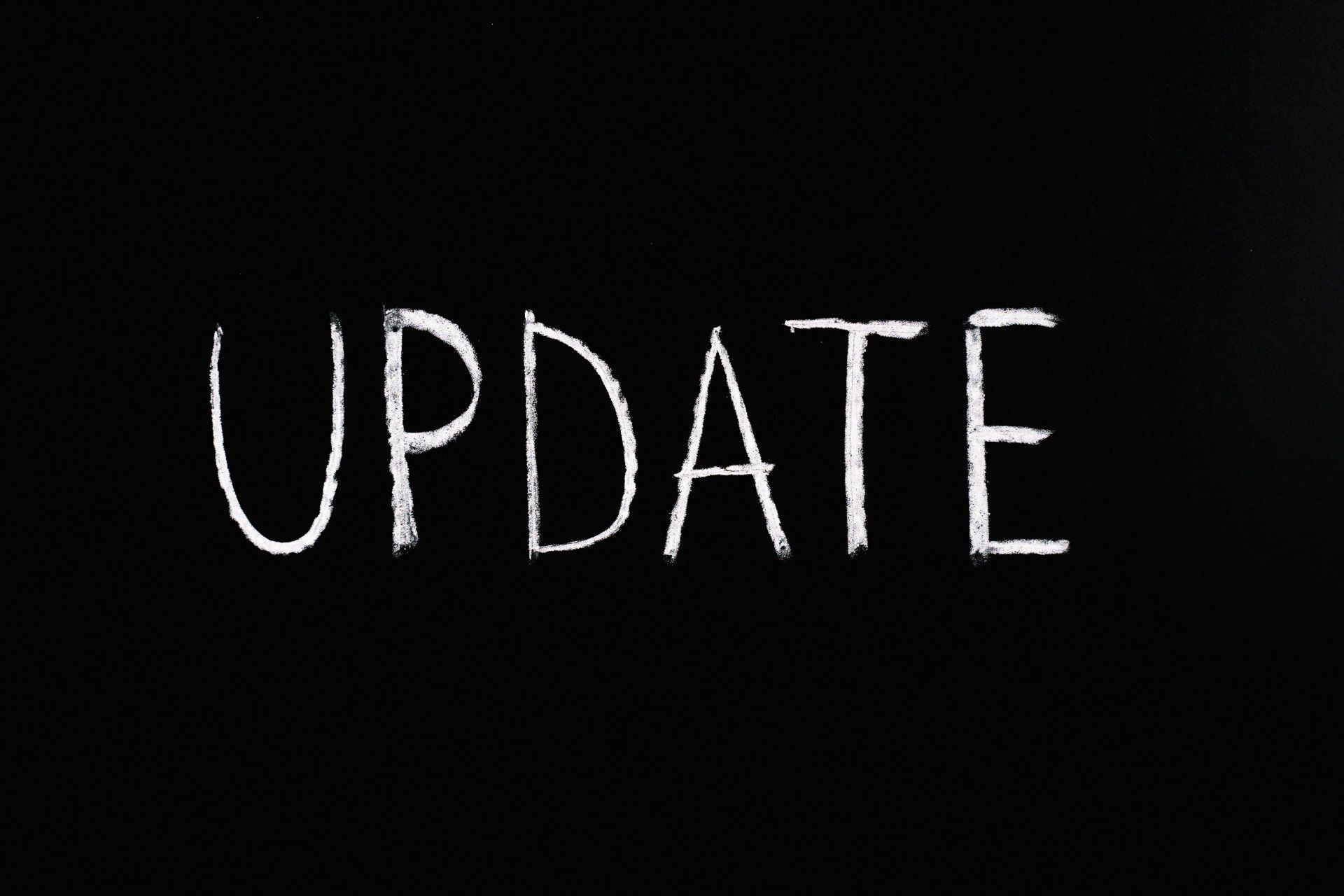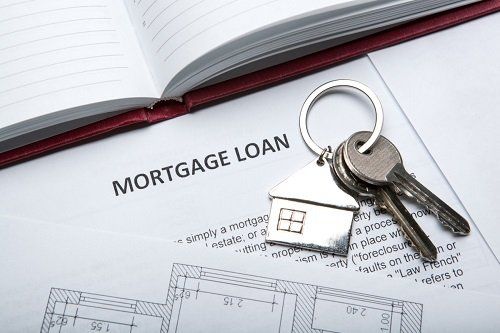Industry News

We've begun to see signs that the Spring Market is here and could be robust! Here is what we know: According to NAR, home sales were up 14% in February over the previous month which marked the biggest monthly increase since July 2020. While March results are not yet published, the mortgage industry saw an increase in purchase applications for the 3rd straight month; a great sign for the housing market. Driving much of this activity is the stabilization of rates in January & February and lower interest rates this past month. We’re starting to see signs of a slowing economy and the markets are now pricing this in. This week we saw the 10-yr Treasury drop under 3.4%, a level it has not reached for quite some time and the lowest it’s been since September 9, 2022. This is great news for consumers as decreasing rates mean more home affordability. Over the past year, most markets have seen home prices stabilize if not even decline, albeit by a very small amount. This stabilization was still a relief for homebuyers as it helped to offset higher interest rates. As rates continue to decrease, we would expect home prices to again increase due to demand increases. In addition to increased demand, there is still a shortage of homes for sale nationwide and that will continue to worsen as more and more homebuyers enter the market. So what does it all mean? Now is a GREAT time to buy a home! Rates and home prices are stable, there is not as much competition as there will be when rates do decrease, and buying a home is still extremely affordable for most. Once rates fall, we will likely see home prices rise and the competition for the shortage of homes will increase alongside it making the window of a buyer-dominated market very small.

Buying a home is a huge investment and one we talk about often - BUT the flipside is that you have an opportunity to cash in on that investment when you’re ready to sell your home! While you do have the chance to cash-in, a lot more work goes into selling a home than you might think! If you are considering selling your home, working with a listing agent will help you market your home, negotiate with potential buyers, work through paperwork, and ultimately close on your home! So what is a listing agent? In its most basic terms, a listing agent is a real estate professional who represents the seller in a real estate transaction. The listing agent lists the home for sale and works on behalf of the seller to sell the home at the best price and terms for their client. Listing your home is a BIG deal and it is not a place to try and DIY. But why can’t you just grab a sign at Home Depot and try and sell yourself? Well, there are lots of reasons some of which include: Professional consultation: A listing agent will walk you through each step and tell you what to expect along the way! They should understand the specific community you’re in and the current market environment and will help you determine a competitive but realistic asking price for your home. Marketing and selling your home: Your listing agent will list your home on the multiple listing service (MLS) in order to better market your home to potential buyers. They also can make staging recommendations and hire a photographer to best show off your home and its features. They’ll schedule house showings, and can be present to answer any questions. Communication and negotiation: Communication is key to both buying and selling a home in order to minimize stress and misunderstandings. Listing agents take care of this important task, by staying in touch with interested buyers and their agents, fielding questions, handling paperwork, and negotiating the final sale price and terms. Recommendations: Seasoned listing agents might come with a list of professionals who they have worked with in the past that they enjoy working with in order to make the selling process smoother for you! Some of these professionals include: real estate attorneys or title companies, inspectors, stagers, those who specialize in home improvement AND of course trusted Loan Officers. How do I find the right listing agent for my situation? In order to find the right listing agent for you, make sure your agent is licensed and has experience, references, and a professional website where you can learn more about them and their qualifications. Most real estate agents work with both buyers and sellers, but some might specialize in one or the other. Once you find a few agents through referrals or online research, meet with them in person to ensure they meet your needs and work well with your personality. It is also important to ask questions during your meeting with them and it’s imperative that you determine what you’re looking for in an agent so you make sure you are happy with the product being delivered. Selling a home can be stressful, especially for first-time sellers. A listing agent can help by taking on some of the burden and providing the information and resources needed to help sellers make informed decisions. We work with agents on both sides of the transaction – if you have any questions or would like a recommendation for an agent in your area, please reach out to us!

So, you’re a first time homebuyer wondering what mortgage loan products are out there for you. We’re here to give you an overview of these products and make it easier to determine which one is right for you! There are various products available and specified for first-time homebuyers (FTHB), but why and do you have to use them? FTHB programs can provide for lower down payment options and less restrictive credit guidelines for those buyers that qualify, therefore making it easier to qualify and afford your first home. It is important to note that while these products are designed for first-time homebuyers some do have income limitations and therefore not all will be able to utilize these options. It’s also important to note that a first-time homebuyer is defined as somebody who has not owned property in three years. So if you owned a house six years ago and have been renting since you sold it, you are now considered a first-time homebuyer again and may be able to utilize these options. Both Fannie Mae and Freddie Mac, the agencies that purchase conventional mortgages, have first-time homebuyer programs that allow for as little as a 3% down payment if the borrower is a first-time homebuyer and under the area median income limits established by the County. These programs typically have a lower rate and reduced mortgage insurance. Additionally, both also have a first-time homebuyer program that allows for a 3% down payment but the borrower or borrowers do not have to meet the area median income limitations. The difference however is that these programs do not offer the reduced interest rate or mortgage insurance. Additionally, there are state/local bond programs, which vary by state, that typically offer closing cost and down payment assistance. So, who are these programs best for? They are obviously best for first-time home buyers BUT does that mean all first-time homebuyers? Not necessarily, they are best for those with limited cash assets who realize the importance of homeownership as a tool for building generational wealth! If you are ready to start the home buying process or want to learn more about these programs or the slew of additional home buying programs and tools available, let’s chat!

Buy or build? A competitive housing market often lends itself to the thought - should I build a home instead of fighting for an existing one? While the question is completely understandable there are numerous factors you need to take into consideration when deciding to buy or build and we’re here to help work through the list of pros and cons on both sides! If you’re thinking of buying vs. building... One pro of buying an existing home is that if you’re trying to move quickly, buying an existing home means you can settle down much faster. Building a new home or buying a fixer-upper requires a lot more waiting, as construction takes time! Also, it is generally less costly to buy an existing home, but that also depends on the market at the time of purchase. A home loan is less risky than a land loan, so a home loan usually comes with a lower down payment and a better interest rate! If you’re interested in buying in an already developed area like a city center or established suburban neighborhood,, it might be hard to find a lot to build on, as most have already been turned into homes meaning that buying an existing home can better place you in the location you want. Once you buy, you can make your own updates and upgrades to your home when timing and resources allow! Of course, there are some cons to buying an existing home as well. One is the stress that comes with home buying. Searching for the right home takes time, and right now, buyers are facing high prices and bidding wars for the properties that are currently available on the market. Working with a real estate agent you trust will make the process less stressful and easier for you! Also, finding the perfect home that already fits your aesthetic or design wants can be tough. You will most likely have to compromise in one area or another if buying an existing home. Additionally, with older homes comes more maintenance, and you might run into those issues sooner rather than later if you buy. A solution to this can be a home warranty so you can budget for those repairs. If you’re thinking of building vs. buying an existing home... Building a home from the foundation up gives you more control over the final product.If you have a dream floor plan or kitchen in mind, then building a home will give you the control you are looking for. You get to work with the builder to make the design decisions (within reason) when you build! Once you've found and purchased the perfect piece of land, you no longer have to worry about competing with other buyers. But the next step of actually building adds another level of competition --construction. Your builder will be competing against other builders for limited construction supplies and labor in the current market which can result in completion date delays and inability to secure your preferred material like the hardwood floors or the kitchen appliances you've been planning on. Less maintenance can be another perk of building, as new construction and appliances will come with warranties and guarantees. You also won’t have to worry about harmful materials like asbestos or lead paint in a new build. One con of building is that it is more expensive to finance due to the lack of collateral. Land loans can be harder to obtain, and often come with higher down payments and interest rates. Buying in a development that is being built already can prove to be a workaround as things like extended rate lock programs exist for situations like this. Lock in your loan now but wait until the home is built to close. Also, while you might receive an estimate of the total costs, it is common for unexpected costs to come up throughout the project. Recent studies show that the average new construction project goes over budget by at least 16% – that is a significant amount when we are talking about home costs! You will want to take that into account when determining what you can afford in a new build home. Building a home also takes much longer than just buying a home that is already built. With the supply chain issues, labor shortage, and unpredictability of the construction industry, it is hard to know just how much someone will be affected by delays which can be a deal breaker for someone on a timeline. It might be more stressful, but in the end, you will have your dream home. It also takes more effort and is much more hands-on, as you will have to work with a variety of people to create your dream home. To Summarize The bottom line is, the decision can be tricky. There may not be a right or wrong answer! Since both options have many pros and cons, it comes down to your own unique situation.

With all the talk about the housing market and constantly changing mortgage interest rates, a common question potential homebuyers have is: Does it make sense to buy right now? Should I be saving for a house or paying off my credit card debt, student loans or any other consumer debt? We are here to answer these questions! When it comes to buying a house, paying down what we call consumer debt should always be a priority for several reasons. First, your credit scores are weighted heavily on credit utilization. If you are using more than 30% of your credit limits, your credit scores will be negatively impacted; more than 50% utilization has an even greater negative effect. Also, credit card debt tends to have higher interest rates, so you do not want to put it off for long. Paying off your minimum payment is a must monthly BUT paying off as much debt as you can will go a long way in helping you increase your credit score. As for student loan debt, it is certainly something you want to pay off, but it is not as important as credit card debt for the following reasons: typically, it has a lower interest rate, lower payments, and also has fixed payments that have a definitive end date or term. The most important thing to understand is that the better your credit score, the more favorable your final mortgage loan may be. Lenders operate on risk and evaluate your reliability as a borrower based on your entire credit picture. Saving for a home is also very important, but it is important to note that you may not need as much money saved for a down payment as you think- first-time homebuyers can finance up to 97% in many cases and sometimes, even more than that! While your preconceived notions of how much you’ll be paying for a downpayment can be lessened, it is still no small amount of money. Closing costs can range anywhere between 3-6% of the final loan amount. Add that with your downpayment and you can expect to pay thousands of dollars up front to buy your home. The bottom line is- you do not have to pay off all of your debt to qualify for a home and you can save money for a down payment and reduce your debt while increasing your credit scores at the same time! So what’s the best option? The honest truth is there is no correct answer. Buying a home is an extremely personal (and large) decision to make. If you’re considering paying off your loans or buying a home, one of the most important questions you can ask yourself is “what are my goals for the future and which path makes the most sense to get me there?” Paying off debt can be a daunting undertaking depending on your specific situation. Should you decide to buy a home, you must understand that you are adding a huge chunk of financial responsibility to your plate. On the other hand, buying a home adds a list of many other responsibilities you may have never thought of before. It’s also important to understand the benefits of both options. Paying off debt can lift a pressure off your shoulders you may not have even known was there, and give you a real sense of financial freedom. On the other hand, buying a home is one of the largest financial decisions you will make and is an accomplishment to feel proud about. In addition to that, becoming a homeowner helps you build equity that can be used for various things down the line. The answer again, isn’t so black and white. If you are ready to start the home buying process or want to learn more, let’s talk!

While we all have heard about the rising mortgage rates this year, what does that actually look like for your mortgage and monthly payments? We’re here to break that down for you! We understand the nerves and potential anxiety around a rising interest rate environment. Over the past two years interest rates, as you likely know, have been historically low. But why? The answer is due to economic uncertainty driven by COVID-19. When talking about rates today, it is important to look at the rate landscape over a longer period of time and understand that the rates we are currently seeing are still incredibly low from that perspective. While yes, rates have been on the rise over the last 90 days or so, they are expected to settle down and level out. That does not mean that they are going to drop, but it does mean that we are expecting things to steady out and remain relatively level. When you think about the cost of waiting, remind yourself that making the decision to purchase a home should never be based on what the rates are doing, but rather about being able to afford the home in terms of a monthly payment. You can head to our latest housing market update for a breakdown of today’s market and the cost of waiting (hint: it could be the difference of a couple hundred dollars…monthly) Rates are cyclical, and while they have been rising as of late, as mentioned above they are still low from a historic perspective. In the 2000s the average interest rate was 6.29%. At some point in the future (no, I can’t tell you exactly when), we will likely see lower rates that will give homeowners the ability to refinance into a lower rate and payment. When starting the home buying process, it’s important to consider several loan programs to find the best solution for you. Again, the most important thing is to ensure no matter what solution you opt for you are able to afford the home you’re buying. No two situations are the same and there are tons of loan products and programs designed to help you reach homeownership in your specific situation. From an investment standpoint, now is a great time to buy! Rates are historically low and home appreciation is at an all time high. While the rate of inflation may slow, your home will still appreciate in value. Experts are predicting the rate of appreciation to slow to about 4-5% this year compared to 20% last year. That should make you feel more confident, as that is a far more sustainable rate of appreciation making homeownership still the best investment around!

Is buying a home (still) affordable? This is an important question to ask yourself when you are starting to weigh the pros and cons of buying vs. renting in today’s market. What makes this more complicated is that due to inflation, both rent prices and home prices are rising. So, which is ultimately more affordable, renting or buying? The answer is buying, but the gap in affordability is admittedly shrinking fast. Much of this affordability is due to the historically low mortgage rates of the past few years. Rates are now beginning to rise, however, and are up more than half a percentage point from the year-earlier period. A higher rate could be the difference of hundreds of dollars in your monthly payment, and that’s where affordability comes in. On the flip side, renting isn’t getting cheaper either. In 2019, the average increase in rent was about 2% (and that’s just the average!). Renter’s are finding it harder and harder to maintain their lifestyle as rent continues to hike up in every corner of the country. Also, when buying a home, you are not just putting money towards a place to live, but it is also an investment. Building your personal wealth through home equity is a great start! We have a whole video about home equity and how you can use it that we’ll link here, but home equity is a great financial tool to use in the future for other investments or decisions. The issue now for potential buyers, especially first time home buyer, is that it is becoming increasingly difficult to save up and budget for a down payment. On average, home buyers today pay around 6% on a downpayment. If you’re buying a $500,000 house, that amounts to $30,000. Even if you opted for a loan option that allowed for a 3% down payment, that still comes to $15,000. That’s a big chunk of change to save up, especially as prices continue to rise and the market stays hot. Budgeting is key to working towards that down payment, but it can be tough in today’s market. Here at Fairway, we want to help you achieve the home of your dreams, and we can work with you in order to find a price range and down payment amount that works for you!

In today’s crazy market, we have to take a step back and really think about going back to basics! In order to best help homebuyers, we must focus on the basics in the market. We need a market correction now more than ever, so instead of dwelling on the past and thinking about how things were last year, we must think ahead and start back with the basics! So what “basics” do we mean? For starters, we have to educate our buyers on the homebuying process! Whether they are a first time homebuyer or not, things are always changing in this market. We have to make sure our buyers are on the same page as us, and keep them updated and informed. Also, we need to prioritize working closely with local lenders. By strengthening these relationships now, it will pay off in time. Lenders and realtors go hand in hand, and working together will make your buyer feel much more comfortable as it will be a group effort. Marketing is also extremely important now more than ever. To get yourself out there, you have to think about the target demographics you are looking for. Younger homebuyers want to see you build up a successful social media profile. Demographics have not changed, even though the market has. If you focus on working hard, getting yourself out there, and going back to basics, you will not only be helping out homebuyers, but also yourself!! If you want to learn more or have some thoughts to share, feel free to contact us today!

Is buying a home still affordable? This is an important question to ask yourself when you are starting to weigh the pros and cons of buying vs. renting in today’s market. What makes this more complicated is that due to inflation, both rent prices and home prices are rising. So, which is ultimately more affordable, renting or buying? The answer is buying, but the gap in affordability is shrinking fast. Much of this affordability is due to the historically low mortgage rates of the past few years. Rates are now beginning to rise, however, and are up more than half a percentage point from the year-earlier period. A higher rate could be the difference of hundreds of dollars in your monthly payment, and that’s where affordability comes in. On the flip side, renting isn’t getting cheaper either. In 2019, the average increase in rent was about 2% (and that’s just the average!). Renter’s are finding it harder and harder to maintain their lifestyle as rent continues to hike up in every corner of the country. Also, when buying a home, you are not just putting money towards a place to live, but it is also an investment. Building your personal wealth through home equity is a great start! We have a whole video about home equity and how you can use it that we’ll link here, but home equity is a great financial tool to use in the future for other investments or decisions. The issue now for potential buyers, especially first time home buyer, is that it is becoming increasingly difficult to save up and budget for a down payment. On average, home buyers today pay around 6% on a downpayment. If you’re buying a $500,000 house, that amounts to $30,000. Even if you opted for a loan option that allowed for a 3% down payment, that still comes to $15,000. That’s a big chunk of change to save up, especially as prices continue to rise and the market stays hot. Budgeting is key to working towards that down payment, but it can be tough in today’s market. Here at Fairway, we want to help you achieve the home of your dreams, and we can work with you in order to find a price range and down payment amount that works for you!



